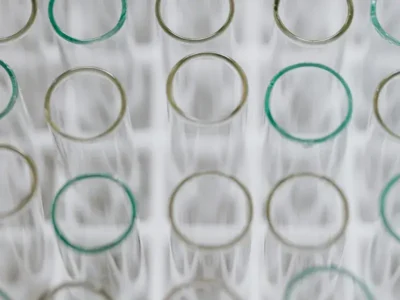You may not spend much time thinking about the dirt underneath your feet, but soil is the cornerstone of life on earth, and is vitally important for our health and wellbeing. It provides nutrients that feed our crops and other plants, filters water, acts as a habitat for billions of organisms in our ecosystem, supplies us with antibiotics and helps to mitigate climate change by storing vast quantities of carbon dioxide and other gases that would otherwise be released into the atmosphere. It combats drought, protects us against flooding and puts food on our plates and clean water in our glasses. As well, it supports our structures, provides essential construction materials and provides a livelihood for millions of people around the world. Soil is our life support system – and it’s important that we look after it.
Which leads us to soil testing.
What is soil testing?
As it sounds, soil testing is the process of collecting soil samples from an area and analysing those samples in a laboratory to determine soil fertility and health. Once these factors are known, suitable interventions can be applied to the soil to improve it and make it more viable for successfully growing plants. Soil tests can also measure pollution levels and environmental contamination, and this information can then be used to reduce these problems. It’s a vital part of modern land use, and has numerous benefits for landowners.
Soil testing is a complex process, and requires knowledge and expertise to get accurate and useful results. Soil testing will give you detailed knowledge about:
- Soil structure – which is important for water infiltration, nutrient availability and root growth.
- Soil aggregation (how soil particles are bound together) – which is important for water infiltration and retention, soil stability and nutrient availability.
- Water retention – which helps prevent erosion and runoff and is important for plant growth.
- Infiltration capacity – which is important for water management and helps prevent erosion and runoff.
- Nutrient absorption (the ability of the soil to hold onto and release nutrients) – which is important for plant growth and preventing nutrient loss.
- Microbial activity (the activity of microorganisms in the soil) – which is important for nutrient cycling, organic matter decomposition and soil health.
- Soil carbon turnover (the rate at which carbon is cycled through the soil) – which is important for soil fertility and can help mitigate climate change.
Why would you need soil testing?
Soil testing is a vital part of the agricultural scene, allowing farmers and gardeners to understand the fertility and health of the soil and how it can be improved. Improved soil leads to improved crop and plant health, increased yields, improved efficiency of operations, cost savings and an improvement in environmental responsibility.
Benefits of soil testing
- It reduces crop and plant health issues and leads to improved crop and plant health.
- It helps farmers maximise their yields and get the most out of their land.
- It helps identify sources of contamination and pollution.
- It helps land to be managed in an environmentally responsible way.
- It ensures landowners are applying the right soil amendments in the right amounts, thus reducing operating costs and environmental impact.
Who should consider a soil test?
Soil tests are of great use in agricultural settings, as farmers will reap the cost of soil testing many times over in increased yield, plant health and quality. And on a lower scale, gardeners who want to improve their soil are also good candidates for a soil test. A test will show you exactly what you’re dealing with, and you can re-test periodically to see if your soil improvement methods are working.
Is soil testing expensive?
The parameters of soil testing vary widely, as each site is different and has varying aspects and requirements. The best way to uncover the cost for your particular project is to get in touch for an expert quote: https://www.heritagetreecare.com.au/
Can I test my soil myself?
Yes – and no.
It’s entirely possible to use those cheap home testing kits available from hardware stores or plant departments to test your own soil. These will only give limited results, however, and are not nearly as accurate or thorough as professional soil testing. If you’re only looking for basic information on your soil, a DIY soil test may suffice – although keep in mind that the information can be inaccurate. There are certain results that only a professional soil test can determine, however. If you need accurate results or are in a commercial situation, you really need to get your soil testing handled by the professionals. Get in contact with the experts at Heritage Tree Care, who will be able to handle all your soil testing requirements with the utmost professionalism: https://www.heritagetreecare.com.au/contact-us/



 Got soil compaction problems? We’ve got the solution!
Got soil compaction problems? We’ve got the solution!